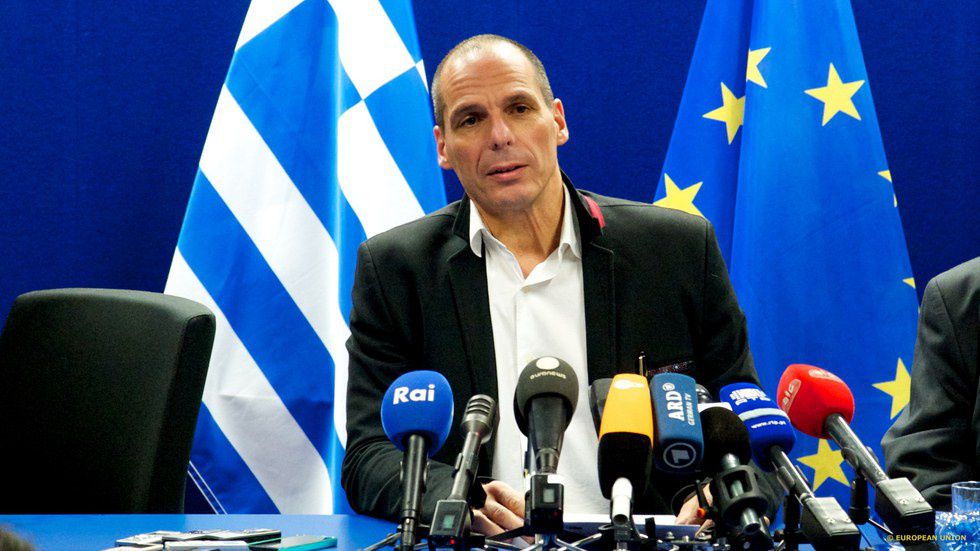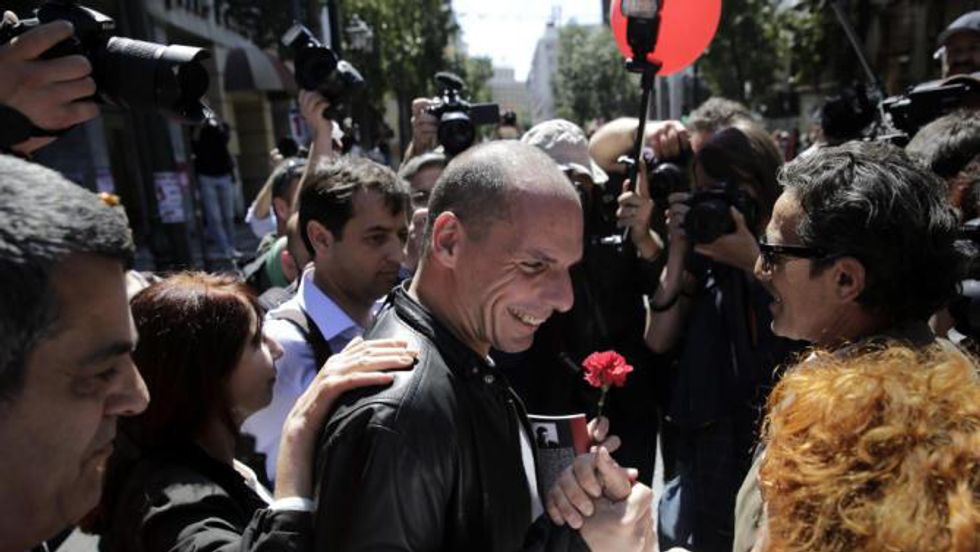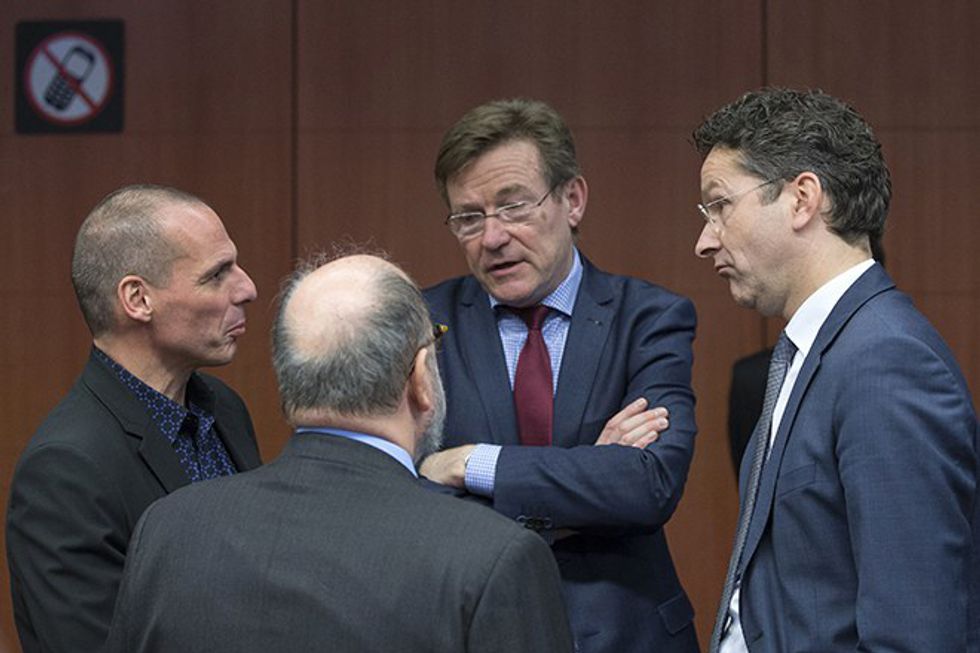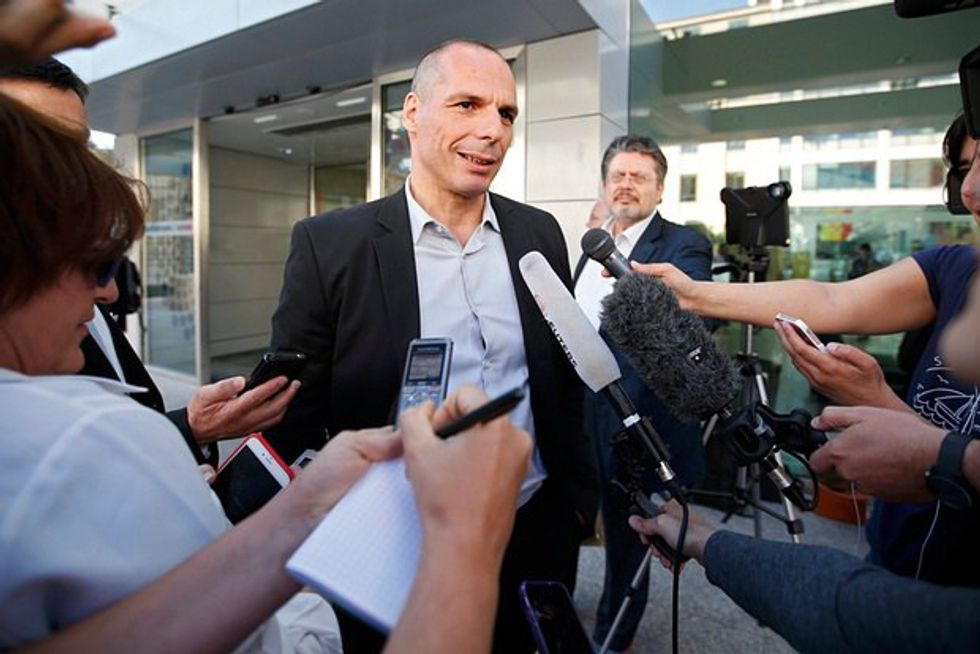In the midst of a disheartening social and economic crisis in Greece, a prominent economist rose to the position of Finance Minister in order to bring hope to the weary Greek citizens. Five months and a few days later, Yanis Varoufakis’ resignation incited a massive global controversy on his accomplishments and failures during his incumbency.
Who is Varoufakis?
Yanis Varoufakis is a renowned economist and the former Finance Minister of Greece. Before getting elected, he became famous through his analysis on the European crisis and the authorship of several books, such as "A Modest Proposal" and "The Global Minotaur: America, the True Origins of the Financial Crisis" and "The Future of the World Economy." His academic career as an Economics professor has been prolific, since he has taught at three different continents in universities such as the University of Sydney, the University of Athens, and the University of Texas, Austin. Academically, he mainly contributed to the Game Theory and Political Economy before devoting his powers to help the Greek economy from the position of Finance Minister.
Strong Beginning
Varoufakis entered politics with a pop because he was the most voted candidate in Greek elections with more than 130,000 votes. The Greek citizens had been familiar with Varoufakis as an economic analyst due to his numerous televised analyses on the Greek debt and economic crisis in general.
With a bold attitude and the momentum of his election at full force, one of the former Finance Minister’s initial actions was to cease negotiations with the troika, a commission composed by European Commission, International Monetary Fund, and European Central Bank. In a historic meeting with Jeroen Dijsselbloem, the president of Eurogroup, Varoufakis stated that Greece is not willing to cooperate with this flimsily constructed commission.
Acceptance By Greek Citizens And The Rest Of The World
Initially, the majority of Greek citizens welcomed Varoufakis as a savior who was agonizingly expected for years to come and save the country from economic chaos. As his acceptance rates were skyrocketing, the former Finance Minister’s fans and enemies were accumulating inside and outside of the country. Before and after Varoufakis’ incumbency, the Greek and international public opinion has been having antagonizing opinions. From the one side, his proponents view him as a charismatic scholar and economist, while his adversaries claim that he is just a reckless gambler, who tried to gamble the country’s hopes for economic resurgence.
Negotiations And Resignation
Despite the robust beginning, Varoufakis’ involvement with the negotiations between Greece and its counterparts was not as lucrative as initial predictions declared. It seemed that the former Finance Minister’s idiosyncrasies were not in alignment with his counterparts’ comportments. Upon these conditions that nurtured a toxic environment within the Eurogroup meetings, Varoufakis was sidelined by Prime Minister Tsipras and eventually resigned from his position, shortly after the decision of the referendum in Greece.
Varoufakis was openly reprehended by his counterparts, who did not agree with his radical proposals and considered his stance erratic and irresponsible.
About two weeks before his resignation, Varoufakis was excluded from the Eurogroup meeting of June 27. His reply to this decision came with the post that commented on Eurogroup’s attitude toward Greece. Among his notes, he supported that, “The very idea that a government would consult its people on a problematic proposal put to it by the institutions was treated with incomprehension and often with disdain bordering on contempt.”
Furthermore, Varoufakis said for the reasons of his resignation:
"Soon after the announcement of the referendum results, I was made aware of a certain preference by some Eurogroup participants, and assorted ‘partners’, for my… ‘absence’ from its meetings; an idea that the Prime Minister judged to be potentially helpful to him in reaching an agreement. For this reason I am leaving the Ministry of Finance today."
Relationship With The Media
European media were familiar with Varoufakis even before his election through his numerous televised analyses on the Greek debt and Europe’s plans on it. Upon his election, he became a media favorite as the media demonstrated a fervent mixture of love and hate toward him through multiple posts and publications on his work and his behavior in negotiations.
His relationship with the media was criticized by Dijsselbloem, who said, “I wish that less time would be given to interviews, and more on extraordinarily conscientiously working on keeping Greece from the threatening abyss.”
Amid this media outburst, ZDF channel from Germany got the chance to mock the situation through Neo Magazin Royale with a satirical video on Yanis Varoufakis and Germans. This video combines mockery to the way media represented the former Finance Minister along with political satire toward the German government and Varoufakis. It concludes with the former Finance Minister performing a solo on Greek mpouzouki. (The last seconds of the video that show Varoufakis “sticking the finger to Germany” have been claimed to be fake by the former Finance Minister)
Economic And Political Propositions
Varoufakis has explicitly expressed his political and economic propositions on a variety of occasions. Below are some of his comments on the issues that were presented to him.
-On the sustainability of the Greek debt and the money that Germany loaned to Greece (interview for euractiv.com):
Germany’s money “was wasted. It vanished into a black hole of unsustainable debt, it never really went to Greece, it went to the banks. The bank bailout was presented as a bailout for Greece.”
-On Syriza and Europe’s approach to the crisis (half a year before his election, 2013 - New York Times article co-authored by him and James K. Galbreith)
“Indeed, right now, Syriza may be Europe’s best hope. Greeks neither want to leave the euro nor see the euro zone disintegrate, an eventuality likely to bring down the European Union. They also know that Europe’s approach to the crisis, involving increasingly harsh austerity and larger loans, has failed miserably.”
In overall, Yanis Varoufakis is of the opinion that the Greek debt is not sustainable and thus Greece is unable to proceed to an economic rejuvenation while carrying such a gruesome burden. He has also supported that Germany, as the strongest European state in terms of economy, should initiate strong political will in order for the Greek issue to be resolved.
Potential Future
It seems that even though Varoufakis has resigned from the position of Finance Minister, he will still be employed by Syriza government as a force behind the scenes to enhance the party's attempts to a better future for Greece.
His willingness to aid the Greek government was confirmed by a post to his personal blog, in which he stated, "I consider it my duty to help Alexis Tsipras exploit, as he sees fit, the capital that the Greek people granted us through yesterday’s referendum."








 sunrise
StableDiffusion
sunrise
StableDiffusion
 bonfire friends
StableDiffusion
bonfire friends
StableDiffusion
 sadness
StableDiffusion
sadness
StableDiffusion

 purple skies
StableDiffusion
purple skies
StableDiffusion

 true love
StableDiffusion
true love
StableDiffusion
 My Cheerleader
StableDiffusion
My Cheerleader
StableDiffusion
 womans transformation to happiness and love
StableDiffusion
womans transformation to happiness and love
StableDiffusion
 future life together of adventures
StableDiffusion
future life together of adventures
StableDiffusion













 shiny things
StableDiffusion
shiny things
StableDiffusion
 listen to your heart
StableDiffusion
listen to your heart
StableDiffusion
 face your fear
StableDiffusion
face your fear
StableDiffusion
 olympic woman
StableDiffusion
olympic woman
StableDiffusion
 Lessons of life
StableDiffusion
Lessons of life
StableDiffusion
 Woman praying
StableDiffusion
Woman praying
StableDiffusion
 Disneys Goofy
StableDiffusion
Disneys Goofy
StableDiffusion
 love
StableDiffusion
love
StableDiffusion
 you are stronger than you think
StableDiffusion
you are stronger than you think
StableDiffusion
 kindness
StableDiffusion
kindness
StableDiffusion









